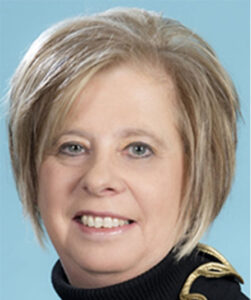TORONTO — There are so many ways to do service fees, and as long as a travel advisor plays to his or her strengths and specialties, there’s no wrong approach to fee structures, say the host agency, chain and consortium execs we spoke to for this series.
This week, in Part 3 of Travelweek’s Service Fee Series, we ask: What service fee strategies work best? And what are the drawbacks to charging service fees?
We also check in with a travel agent who has successfully implemented service fees at her agency. In this edition, that’s Lola Vassiliadis, Cruise Specialist / Owner of Cruise Holidays of Oakville and Cruise Holidays of Lawrence Park.
QUESTION: From tiered fees to rebates-with-booking, there are so many ways to do service fees. What strategies work best?
A lot depends on the type of travel, and the advisor’s comfort level, says TravelOnly’s VP Sales & Retail Development, Ian Elliott. “If you are a destination wedding specialist you may charge an upfront planning fee because of how much work goes into a destination wedding.”
Elliott adds: “As an incentive, some advisors may credit a portion of that fee towards the trip when booked but I would never recommend doing a complete refund.”
For sure, rebating the service fee back to the client has long been a popular strategy. It has its merits, but other execs we spoke to had words of caution as well.
“Putting the fee towards the total cost of the booking is an attractive selling point to an agent but needs to be clearly communicated so that the agent is still seeing the benefit and added income of the fee when the booking is completed,” says Independent by Flight Centre’s General Manager, Lee Zanello.
And Direct Travel’s Senior VP, Leisure Marketing, North America, Stephen Smith, says that while Direct Travel supports all of its advisors who charge fees, “we are not big fans of rebating the fee after a booking is made, because in fact that is not charging a fee at all, but in actuality taking a deposit. In that case the advisor is not getting compensation for the distinctive services they are providing.”
No matter the strategy, consistency is key, says Independent by Flight Centre’s General Manager, Lee Zanello. Putting himself in the shoes of a client, Zanello says: “A consistent fee for any enquiry I have is easy to understand and that consistency builds trust between me and my agent.”
The fee schedule should be easy to explain, understand and work with – and the advisor must be comfortable with it, says Nexion Travel Group – Canada’s President, Mike Foster. “It’s also important that the advisor doesn’t simply copy other fee schedules,” says Foster. “This is important and it will impact your business. Model the plan and consider the possible impacts to all you can to make sure that they help you reach your goals. It is best to try to get it right from the outset.”
Earlier this month Transat Distribution Canada (TDC) announced it would offer its entire network, including franchisees and corporate-owned agencies, as well as its agent@home program, a revised professional fee grid.
“I think the new approach we’re taking, which is to base our professional fees on the type of experience the client wants instead of charging for a specific product, is ideal because the client sees what the travel professional can bring to the table. Clients choose the level of service they wish to receive and the fees they pay are at par. In other words, we will no longer invoice according to a reserved product but according to the service rendered,” says TDC’s General Manager, Louise Fecteau.
TDC’s new grid, based on two different service levels, each with associated fees, will be implemented in all Transat Travel agencies as of March 1, allowing all advisors to take the training beforehand.
Service fees are completely customizable, and that’s a positive that’s in keeping with the home-based model, says Zeina Gedeon, President and CEO of host agency TPI. “The beauty of being an independent travel advisor, is the ability to implement a fee structure specific to your business. There isn’t one formula that works for all. We look at the overall business mix and coach our advisors on ways to set up a fee program to best suit their needs,” says Gedeon.
A tired approach would likely more sense based on the complexity of the transaction, notes TL Network Canada VP, Christine James.
Finding the fee solution that works best for each agent can make all the difference, says Flemming Friisdahl, founder, The Travel Agent Next Door. “The way that works best is the one the agent feels comfortable doing. Because if they are not comfortable doing it, then they will not do it, so ANY way of charging a fee is a positive step and will get the consumer into understanding we bring value and need to be paid for it.”
QUESTION: Are there any drawback to charging service fees?
Most of the execs we spoke to agree: there’s always the chance a travel agent could lose a client. But tirekickers and clients who walk out the door over a few dollars are nothing new. And with the ongoing challenges of the pandemic there’s never been a better time to talk about the value of a travel agent’s work.
“This is seen as the best possible time to relook at how to serve the right clients. Since business has been so severely impacted it’s really a fresh slate,” says Direct Travel’s Stephen Smith.
Client loyalty needs to be built on more than price alone, adds IFC’s Zanello.
TravelOnly’s Elliott agrees. “We no longer can afford to work with clients that don’t value our services. We want to work with clients that appreciate all that we do – working for free is no longer an option.”
Nexion’s Foster says that if agents lose bookings, there may be more at play than just service fees. “If you lose sales you wanted, either your schedule isn’t working as you want, or the business wasn’t right for you. That is an overly simplistic answer as you also need to have the skills and value to compete for the business, and the ability to sell and close sales. Which means more training and planning, and now’s the time for that too!”
TDC’s Fecteau says a significant number of travellers are no longer in need of convincing: “They see the many advantages of working with a travel professional and are quite comfortable recognizing their expertise by paying them a professional fee.”
Clients who balk at a service fee often just aren’t worth it, says TTAND’s Friisdahl. Even if an agent loses a a few customers, “those are the cheap customers that DO NOT see the real value in a travel agent – such as when stuck in a destination and you have nobody to call. Not all business is good business and some of it you should walk away from, as it will cost you more to take care of than you will earn.”
 IN HER OWN WORDS: A SERVICE FEE SUCCESS STORY
IN HER OWN WORDS: A SERVICE FEE SUCCESS STORY
Lola Vassiliadis
Cruise Specialist / Owner
Cruise Holidays of Oakville / Cruise Holidays of Lawrence Park
Toronto, ON
BACKGROUND: “I have been in the travel industry for 28 years. Of those 28 years I have owned Cruise Holidays of Oakville for 23 years and Cruise Holidays of Lawrence Park for four years. I have been charging fees for airline bookings from the very beginning when I opened Cruise Holidays of Oakville.”
RATIONALE: “I started out with fees for airline tickets to recoup the lost commission but then realized we should be charging fees not just to recoup lost commission, but also for the time spent researching and booking add-ons to the cruise booking such as hotels, transfers, private tours, private shore excursions, etc. No one wants to work for nothing and it became very disheartening for my agents to spend the amount of time and energy they did on behalf of the client and not get anything for it if the particular add-on didn’t materialize. That was one of the major reasons we started charging non-refundable fees. At least we are making something on the time spent.”
FEE STRUCTURE: “We have a menu of services and the fees are dependent on what service we are working on for the client. It can be as low as $25 per person for a simple airline ticket to a $200 non-refundable planning fee.”
CLIENT FEEDBACK: “The only push-back we have received is on the planning fee.. It stops “shoppers” in their tracks – they won’t pay the $200.All they really want is either to pick our brains and book elsewhere or they are looking for the lowest price, not service. Our business model is not to be the lowest price out there – it’s based on service and knowledge. Those that are serious and appreciate our expertise and service don’t have an issue with the planning fee.”
ADVICE FOR FELLOW AGENTS: “I would tell them two things. First, believe in yourself. You are a professional, you have put a lot of time, effort and money into getting where you are. If you don’t believe you are worth it you will have a hard time sounding confident explaining the fees to clients. Second, start small. Start with charging a fee for booking an airline ticket. Everyone knows that airlines don’t pay commission and they will be charged a fee wherever they book. Once you are comfortable with that branch out to other services such as a hotel booking, and so on.”
A new instalment of Travelweek’s 4-part Service Fee Series runs every week in Travelweek Daily.
Part 1 features travel agent Elizabeth Rodgers from Journeys by Elizabeth in Belleville, ON.
Part 2 features travel agent Ashley Doell, a travel consultant with TPI based in Warman, SK.

